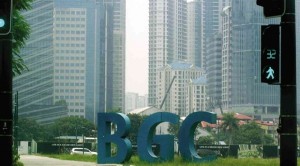MANILA — The population of Taguig City, home to the fast-rising Bonifacio Global City (BGC) business and commercial hub being disputed with neighboring Makati City, was also the fastest-growing in Metro Manila during the past five years.
A Philippine Statistics Authority report on the population in the National Capital Region (NCR) showed that Taguig posted an average annual population growth rate (PGR) of 4.32 percent from 2010 to 2015, exceeding Mandaluyong City’s 3.12 percent and Parañaque City’s 2.39 percent.
Taguig City’s population grew to 805,000 as of Aug. 1 last year from 644,000 in 2010 and 467,000 in 2000.
Taguig’s average annual PGR from 2000 to 2010 of 3.26 percent was also the highest in the region.
The lowest average PGR in NCR during the 2010 to 2015 period was that of Navotas City, at 0.03 percent.
For the entire NCR, the annual population growth rate averaged 1.58 percent during the last five years, slower than the average of 1.78 percent posted from the year 2000 until 2010.
While Taguig’s population was increasing the fastest, Quezon City remained the most populous among the 16 highly urbanized cities in the region, with a population of 2.94 million. Rounding up the top three most populous cities in NCR were Manila (1.78 million) and Caloocan City (1.58 million).
Among NCR cities, San Juan City had the smallest population with 122,000, while Pateros—the region’s lone municipality—had 64,000.
In all, NCR’s total population of 12.88 million composed around 12.8 percent of the Philippine population of 100.98 million as of Aug. 1, 2015, based on the results of the latest census of population conducted last year.
In 2000, the population of NCR stood at 9.93 million, and increased to 11.86 million in 2010.
Among NCR’s 1,706 barangays, the five most populous were Barangay 176 in Caloocan City, with 246,515; Commonwealth, Quezon City (198,285); Batasan Hills also in Quezon City (161,409); Pinagbuhatan, Pasig City (151,979); and Payatas, also in Quezon City (130,333). SFM
